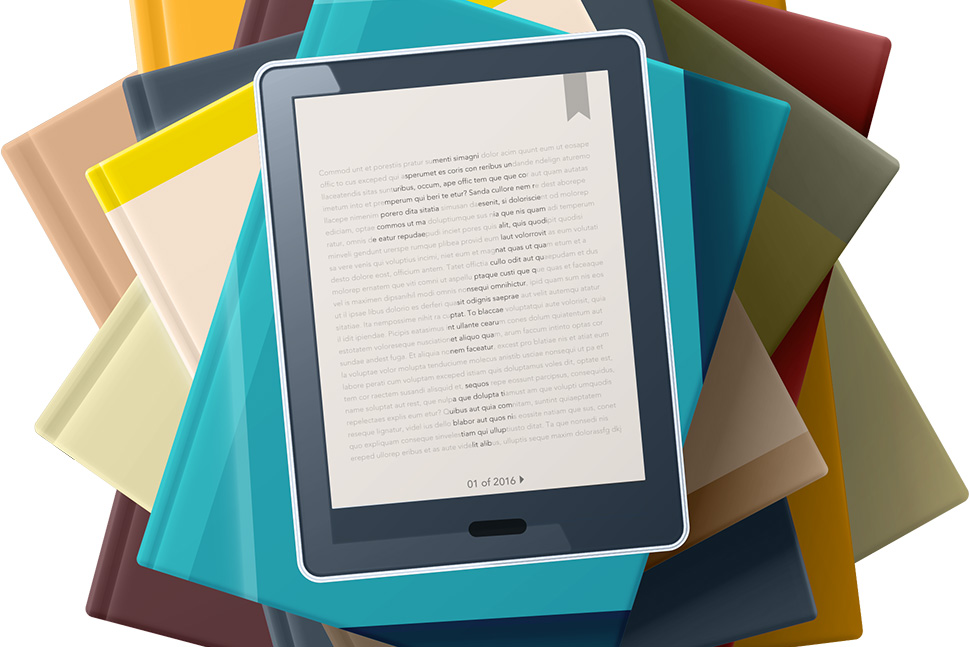Why Are E-Books So Expensive?
By Ana Sophia Garcia Cubas Assemat

Allow me to paint what may be a familiar picture:
You get a book recommendation. Maybe from your mom, a friend, or Tiktok, but you hear about a book that you simply must get your hands on now. You can’t get it in print for some reason. Maybe you’re trying to save money, maybe you don’t have space in your bookshelf, maybe you just prefer digital copies. So you get on your e-reader, be it e-ink or a tablet or a laptop, and you search your favorite online retailer for your book.
Only to be faced with an $18.99 price tag for what, to you, holds about the same value as a PDF.
This is what I used to pay for a hardcover before the pandemic, you think. What the hell happened here?
When balking at the price tag for a digital copy of a book, one needs to understand that physical books aren’t really that expensive to print.
Manufacturing and distribution costs amount only to a couple bucks per book. Large print runs help decrease the printing cost per copy, so big publishers have the ability to bring the cost per book as low as they need it to be.
The true cost of printing a book does not come from what it costs to produce a physical copy: it comes from the production of the text itself. More than the 2-3 bucks in printing costs, what you’re paying for as a consumer is for the authors, the editors, the publicists, the designers, the copyeditors etc. These costs are related to the production of the text itself, and cannot be circumvented solely by getting rid of the print product. Therefore, there is no real reason for ebooks to be dramatically less expensive than their physical counterparts: you’re paying for the production of the text, something that you still get when buying an ebook.
But doesn’t that mean I should be getting a discount regardless, even if it’s only the couple bucks the publisher saved on printing? Not necessarily. The cost of production may have gone down a little, but one could argue that the value of the product increased.
People pay extra for expedited shipping because they value receiving a product sooner. In the same way, the instant access that you have to an ebook after you buy it might be convenient enough to warrant forgoing a discount.
Similarly, when you buy an ebook, you buy a copy of a book that will never get damaged, destroyed or lost. Have you ever had a Percy Jackson fan show you their first copy of The Lighting Thief? Books are particularly vulnerable to wear and tear, and you don’t need to run a copy over with your car in order for it to become unusable: something as simple as bending a spine can make a book fall apart in a couple of years. An ebook is not susceptible to that wear-and-tear, and could technically last you forever.
From the publisher’s point of view, you also need to consider that publishers want to keep print books relevant amidst supply chain issues and rising prices. Publishing is a game that follows the rules of the economy of scale: the more books you print, the more books you sell, and the less they cost to produce. If ebooks become consistently cheaper than paperbacks, they would render paperbacks obsolete to big swaths of the market, harming print sales and compromising publishing’s ability to do large print runs that lower production costs.
The price of ebooks boils down to a very simple issue: An author’s gotta eat—and the publishers too.
Who cares about all that, I might as well pirate at this point, you think. I definitely understand that rationalizing the price tag on an ebook does not make the wallet hurt any less, so here are some alternative ways to save money on ebooks without hurting authors and publishers:
Libraries! Did you know that you can check ebooks for free out of your local library? You can even do it directly from your e-reader. You can place holds, borrow and return books all from the comfort of wherever it is you are sitting. Check which service your local library uses to distribute ebooks, a good number of them (including the Boston Public Library) use Overdrive, which comes preinstalled in most Kobo e-readers. Or you can use Libby, a library reading app that can be downloaded on most devices. All you need is a library card, and you can borrow ebooks to your heart’s content.
If you are adamant on owning your own ebook copies, there are websites like Bookbub that will send you ebook promotions straight to your email. You can even add books to your wishlist and get personalized notifications for when their prices drop, as well as recommendations based on your favorite genres and the best deals.
The bottom line is that ebooks are priced as fairly as they can be, but that there are ways to get them for cheaper—or even for free!—through legitimate channels, like public libraries or sales.

Publisher shill much? ebook seller shill much? AYKM?!
…and MANY ebooks are MORE expensive than the hard copy printed physical book.